1,576 days, 2,409 entries ...
Newsticker, link list, time machine: HOLO.mg/stream logs emerging trajectories in art, science, technology, and culture––every day
Gala Hernández López’s sci-fi documentary for here am i sitting in a tin can far above the world (2024) premieres at Berlinale. In the double-screen collage of YouTube videos, archival images, and 3D animations, the French artist-researcher and filmmaker explores the links between crypto culture and cryogenics as two speculative technologies that exploit the future. A key narrative figure: American extropian and cypherpunk Hal Finney, who, in a fictional future, implements societal biostasis for economic gain.
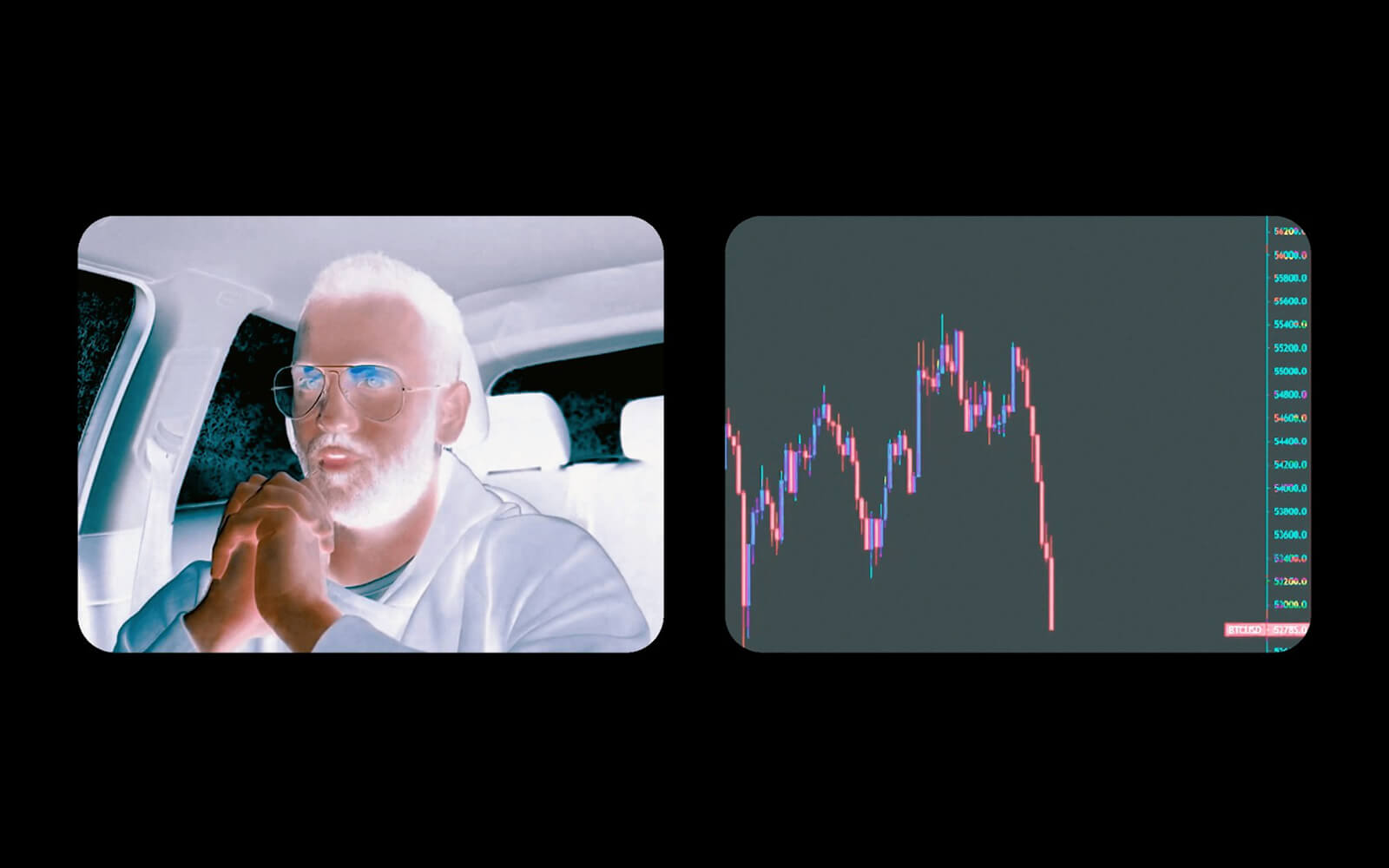
“If the tale of hard work and upward mobility kept us yoked to our employers and our 9-to-5 jobs, the fantasy of the YOLO investment ‘Lambos or food stamps!’ keeps its subjects attached to the market. To risking it all.”
“The growing awareness that unchecked centralization and over-financialization cannot be what ‘crypto is about,’ and new technologies like second-generation privacy solutions and rollups are finally coming to fruition, present us with an opportunity to take things in a different direction.”
“They serve no positive function for society. They’re like mustard gas, polystyrene, lead in gasoline—all these crappy ideas we had to get rid of.”
At the New York trial of disgraced FTX CEO Sam Bankman-Fried, co-founder Gary Wang testifies the crypto exchange used a random number generator to create fake daily deposit values for an ‘insurance fund’ to reassure investors. Calculated by taking an arbitrary number around 7,500 multiplied by the platform’s daily volume and divided by a billion, the greatly embellished fund “was intended to protect FTX and its customers from losses due to unprofitable liquidations,” says Web3 critic Molly White.
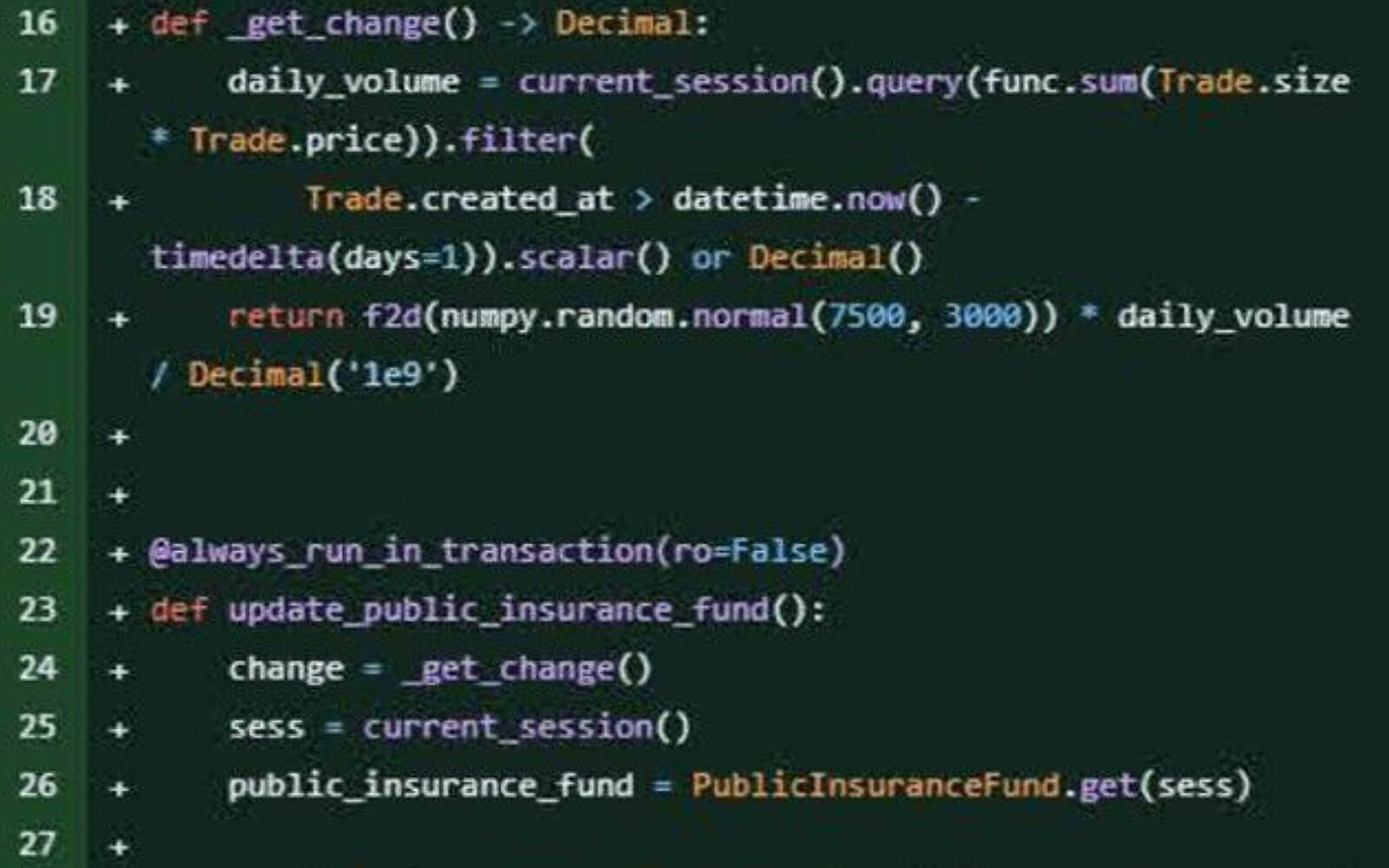
“Today’s sentence should serve as a warning to other corporate insiders that insider trading—in any marketplace—will not be tolerated.”
“Scanning the irises of individuals in the Global South, who genuinely need the money and are unaware of potential risks, is a contemporary form of colonialism.”
“It’s the future of finance! Except when the SEC comes knocking, then it’s just a harmless little toy, Your Honor.”
“I think markets are fundamentally a better source of truth than media or narratives.”
“By 2025, unless a radical rethink takes place in how we develop AI systems to better account for their environmental impact, the energy consumption of AI tools will be greater than that of the entire human workforce.”
“On the whole, despite the ‘dystopian vibez’ of staring into an orb and letting it scan deeply into your eyeballs, it does seem like specialized hardware systems can do quite a decent job of protecting privacy.”
Worldcoin, a proof-of-personhood digital identity system for a future full of AI agents, launches. A Tools for Humanity (OpenAI’s Sam Altman and engineer Alex Blania) initiative, it proposes iris scanning everyone on earth to assign them an anonymized biometric identity—and a related cryptocurrency. Anticipating AI-induced cultural shifts, Altman & Blania claim Worldcoin will let users “prove you are a real and unique person online” and assist in universal basic income (UBI) disbursement.

Diving full-on into data aesthetics, Dutch artist (and half of JODI) Joan Heemskerk’s “REc+ >>>” opens at Brussels’ Rectangle (BE). Broadly engaging networks, data, and cryptography, Heemskerk foregrounds the abstraction implicit in computation, in one piece visualizing a mournful requiem for a (crypto) wallet and in another taking the elegant mathematics of base number system conversion (2 to 8 to 16) and expressing it as a sculptural colour study (image: Untitled, 2023).

“Waiting for the Other Shoe to Drop,” a send-up of disgraced crypto CEO Sam Bankman-Fried’s (SBF) Future Fund by Michael Stevenson, opens at Michael Lett in Auckland (NZ). The show takes aim at SBF’s defunct effective altruism charity by reproducing the text from the fund’s website on beanbag chairs—just like those beloved by the former billionaire. The New Zealand artist describes each chair (filled with shredded paper) as “a placeholder” for “good intentions and a compromised crypto ecosystem.”
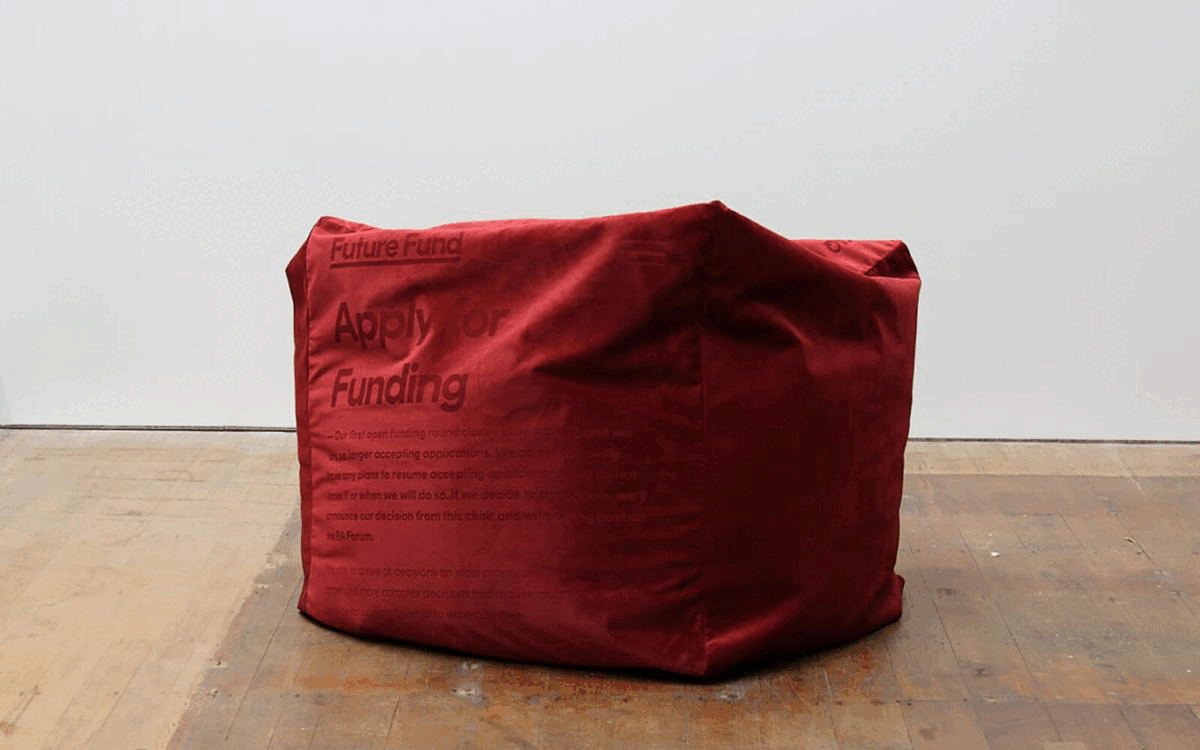
Ringers #879 (The Goose), from Canadian artist Dmitri Cherniak’s 2021 Art Blocks NFT series, is sold at a Sotheby’s London auction for $6.2M. The sale to collector 6529 completes an ‘only in crypto’ journey, as the NFT was amongst the liquidated assets of collapsed crypto hedge fund Three Arrows Capital. ‘The Goose’ is perhaps Ringers most beloved output, for the avian neck, beak, and eye that serendipitously peeks out from an algorithmic exploration of the myriad ways to wrap pegs with string.
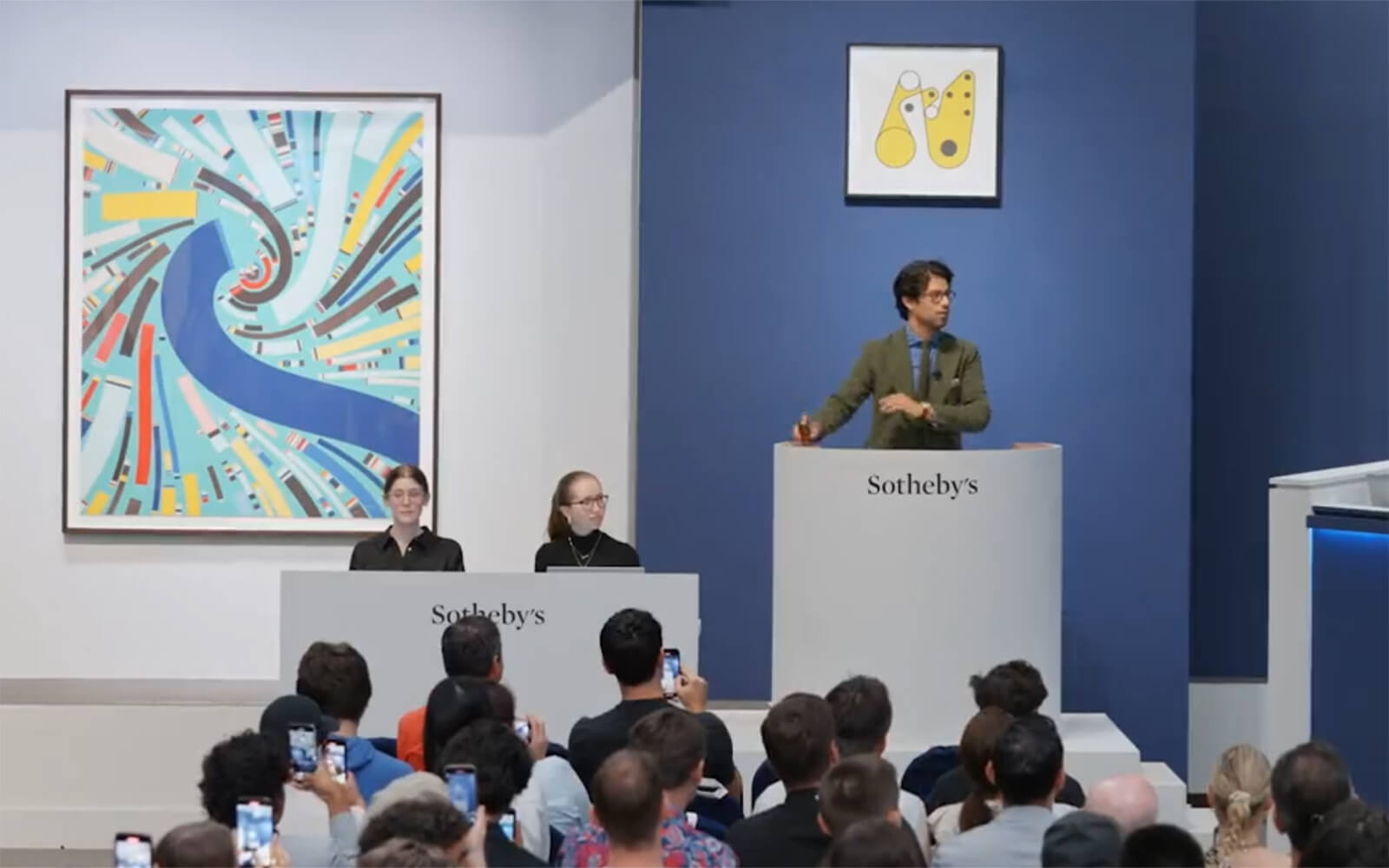
“I’m so grateful that the AI revolution came along if for no other reason than that it showed us what it looks like when consumers actually get excited about something. It truly revealed that the crypto story was about 98% hype.”
“I think the Bitcoiners that are celebrating these enforcement actions tend to be later on the adoption curve and lower on the IQ spectrum than folks that actually know what’s going on. They’re cultists.”
Danny Franzreb
Proof of Work
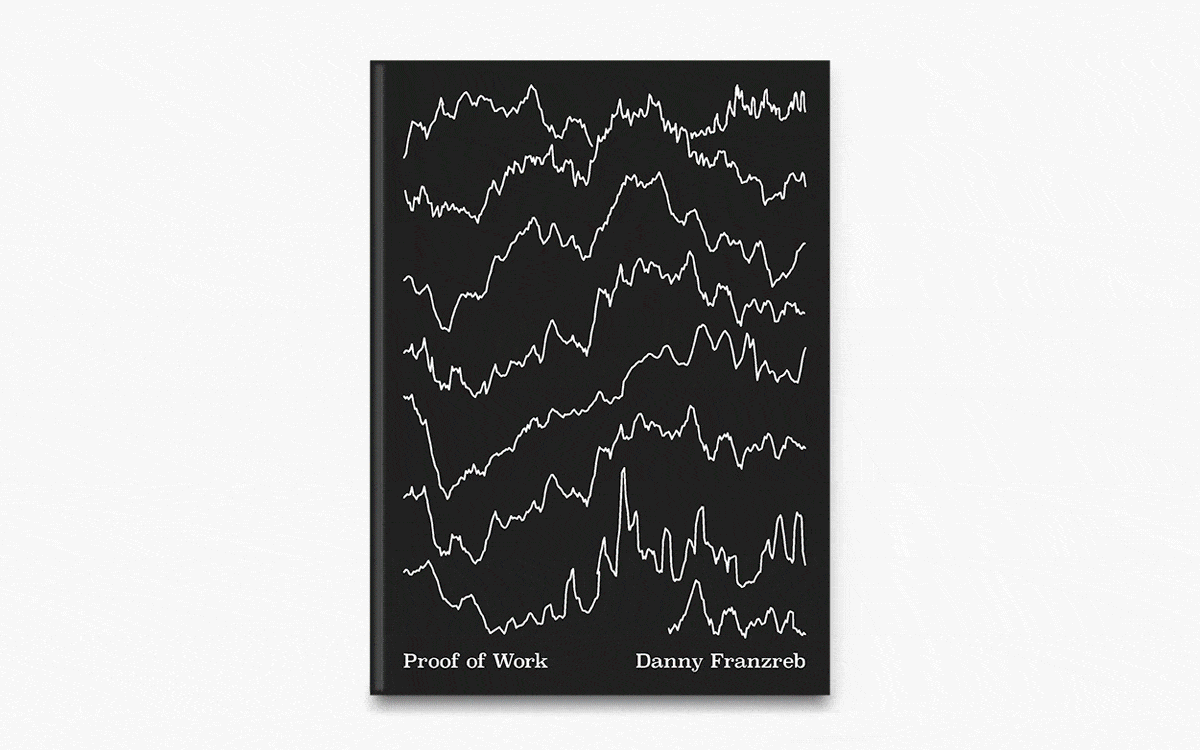
Cory Doctorow
Red Team Blues

Daily discoveries at the nexus of art, science, technology, and culture: Get full access by becoming a HOLO Reader!
- Perspective: research, long-form analysis, and critical commentary
- Encounters: in-depth artist profiles and studio visits of pioneers and key innovators
- Stream: a timeline and news archive with 1,200+ entries and counting
- Edition: HOLO’s annual collector’s edition that captures the calendar year in print
